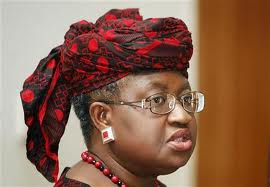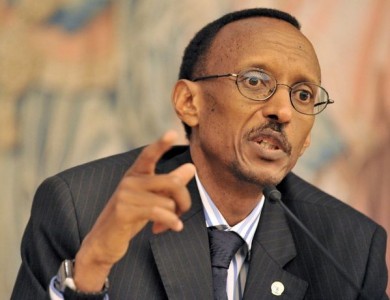The Company plans to redeem and refinance its maturing obligations at the end of 2013 through 2014.
Finance analysts have commended the move by Nigeria’s Asset Management Company, AMCON, to redeem and refinance its maturing obligations at the end of the year, saying it would allay fears of inflation and financial instability.
Over the weekend, AMCON announced its intention through a circular of a comprehensive plan to redeem and refinance its maturing obligations at the end of 2013 through 2014. The aggregate amount of the debt instruments with a principal amount/face value of N5.7 trillion is to be affected. The principal amount issued as zero coupon bonds (where payment is retired in a final bullet payment) was N3.9 trillion, with three years tenure.
This indebtedness was incurred on behalf of the Central Bank of Nigeria, CBN, in its surgical intervention to stave off a looming systemic crisis in 2009. The bonds were issued in exchange of eligible bank assets (toxic) as well as recapitalization of the banks that failed to be acquired after the CBN intervention.
The banks that received these bonds either sold portions to CBN to raise funds to settle their interbank liabilities and/or kept them on their balance sheets as Held-to-Maturity (HTM) assets.
As of today, most of the N2trillion sits on banks’ balance sheets and the balance, N3.6trillion, sits with the Central Bank, according to Renaissance Capital, an investment bank.
The firm said AMCON will retire the N2trillion which is held by the banks this year and in 2014.
“The repayments will be done via cash and ‘liquidity status qualifying instruments’ that is, Treasury bills. Both AMCON and Central Bank have stressed that the “refinancing will be in a manner consistent with efficient macroeconomic stability, ensuring no monetary policy dislocation.”
“We take this to mean that the Central Bank will not allow cash to flood the market and threaten the naira and hence inflation. We believe banks are likely to receive Treasury bills in exchange for most of their AMCON bonds,” the firm said.
The redemption of bonds held by banks is expected to be complete by October 2014 at which point CBN will be sole creditor to AMCON, holding N3.6 trillion of bonds. These remaining bonds will be refinanced – the CBN governor, Lamido Sanusi, indicated yesterday at the MPC Q&A session that the new rate would be 6 per cent (currently up to 13 per cent).
Mr. Sanusi also said the AMCON levy, whereby all banks contribute to the AMCON sinking fund, is unlikely to be raised further from the current level of 0.5 per cent (of each bank’s previous year total assets). Last year it was lower at 0.3 per cent.
The Central Bank expects to recover its debt from AMCON via proceeds from the sinking fund and recoveries. To a large extent, this will become an internal affair between AMCON and CBN.
The firm said there are positive and negative sides to the development.
“Treasury bills are more liquid than the AMCON bonds – the secondary market in AMCON bonds never took off. Less liquid banks will be able to better manage their liquidity positions and hence we could see greater stability in the interbank rate – favours the Tier 2 and smaller banks,” the firm said.
RenCap however said as long as Mr. Sanusi is in office, he will ensure that there is no excess liquidity in the system.
“This means no likely reduction in the MPR or CRR in the short-term. The risk, in our view, is that the CRR could be raised further should there be a risk of excess liquidity,” it said.
Bismarck Rewane, Managing Director, Financial Derivative Company, a diversified financial institution said the rationale, justification or motivation of this move continues to be a subject of controversy and endless debate.
“The move by AMCON to redeem its obligations in an orderly manner, allows for a seamless systematic assimilation of a huge chunk of financial assets which had the potential of constipating the Nigerian financial system and undermining economic growth” he said.
“The leading question raised by most monetary economists is what will be the effect of this re-payment plan on monetary stability, especially the general price level in an inflation targeting monetary policy framework and environment. One has to bear in mind that the face value of the debt to be refinanced and redeemed is N5.7trillion which is 35% of Broad Money supply (M2). Conventional logic dictates that there is a positive correlation between money supply growth and the rate of inflation” he said.
Mr. Rewane said policy makers had been haunted in the last 48 months by the spectre of the transmission effect on the financial system and the supply-side shocks or its spill over impact of the redemption on other leading economic indicators.
“There is anxiety the consolidation of AMCON bonds into the national debt may push Nigeria into the club of countries with debt sustainability problems. Nigerian total debt service to GDP ratio is still at 0.5% which is well below the global average,” it said.
He said the Central Bank in anticipation of the possibility of money supply saturation resulting from the plan had mopped up more than an equivalent amount of liquidity from the system.
“This has created a money supply gap of N2.3trillion which will be filled by the monetization of the redeemed securities of N2trillion in 2013 and the refinancing of the N4trillion in 2014 by the CBN. The impact therefore, is neutral to the allocation of financial resources,” he said.
According to Mr. Rewane, the inflationary threats that typically accompany an explosion in money supply growth in a full employment economy will be relatively subdued in this case in Nigeria. He said there will be undercurrents of inflation that will bubble to the top, but this can be properly managed by a cocktail of measures within the ambit of the Central Bank.
The other elements of the orderly AMCON exit of the intervention process includes the sale of positions in asset held in equity, real estate and other markets. The holding of asset has two important systemic benefits. Firstly, is reducing the overhang in an equity market that was in a free fall. The fact that AMCON held off significant blocks of shares has allowed the equity market rally to enjoy relative sustainability. The other benefit is that the values of these assets in some cases have appreciated.
AMCON has announced a comprehensive plan to redeem and refinance N5.7trn of its bonds (37 per cent of Money Supply) in a bilateral agreement with the Central Bank. Analysts had expressed fears that the plan will have the unintended consequence of the transmission effect usually associated with high powered money. This includes runaway inflation and currency depreciation. The National Headline inflation rate is annually 9.1 per cent and the currency has been stable within a range for 3 years of N150 – N160.
“Analysis shows that these fears are mostly misplaced and grossly exaggerated. Whilst there is the orthodox correlation between money supply growth and inflation, the fact that a substantial portion of these bonds have already been monetised in repurchase agreements by some banks reduces the potency of this threat and any possible fallout” Mr. Rewane said.
Premiumtimes














